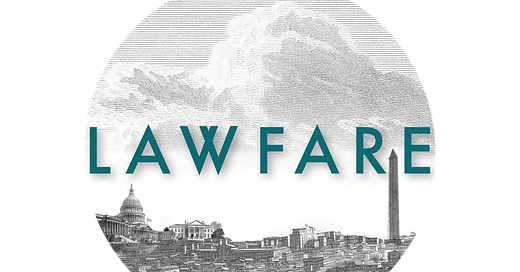Compiled by Gia Kokotakis
Articles
A Victim’s Perspective on International Law in Cyberspace
Chris Carpenter and Duncan B. Hollis discussed Costa Rica’s position paper on the applicability of international law in cyberspace following two significant ransomware attacks last year against Costa Rican government bodies.
Costa Rica’s statement tracks the vast majority of its predecessors in acknowledging the applicability of international law “in its entirety” to information and communication technologies (ICTs), including the prohibition on the use of force and international humanitarian law (IHL). It tackles many of the same topics covered in other states’ national statements—such as nonintervention, sovereignty, countermeasures, and due diligence—while raising others that have not received as much attention—including human rights, peaceful settlement of disputes, and neutrality. Costa Rica has clearly spent time examining other states’ statements and, in particular, “academic projects on the application of international law to cyber operations” including the Oxford Process (for which one of us is a co-convenor), the Tallinn Manuals, and the Cyberlaw Toolkit.
When Forgiveness Is Impossible: How Atonement Works as Policy
In this week’s edition of Lawfare’s Foreign Policy Essay Series, Kathrin Bachleitner discussed how West Germany’s 1952 Luxembourg Agreement with Israel can serve as a model for using atonement as a political strategy to approach the legacies of other international human rights abuses.
The German-Israeli example offers a road toward international stability that goes beyond the formal settlement of a conflict to build a more durable peace. “State atonement” should be added to the toolkit of postconflict reconciliation practices, alongside trials and truth commissions, as a way to bring together a former perpetrator with its victim and create a fruitful and lasting connection between them. Finally, to those who view atonement as merely an ethical policy choice, these insights serve as a reminder to bring politics and strategy back into the equation. The good news about these strategic incentives is that atonement does not require the “right” beliefs, but an alignment of interests: Atonement, after all, is a political choice between a former perpetrator and its victim precisely in contexts when forgiveness is impossible.
Podcasts
The Lawfare Podcast: An Earthshaking Election in Guatemala: Quinta Jurecic sat down with Manuel Meléndez-Sánchez to discuss the Aug. 20 election of Guatemala’s new president Bernardo Arévalo. They covered Arévalo’s victory, the wild months leading up to it, and the challenges that lie ahead.
Lawfare Announcements
Benjamin Wittes and Paul Rosenzweig announced the launch of a new multi-year Lawfare project that will create a density of works evaluating the elements of the “security by design” approach to software security.
Support Lawfare
Follow us on Twitter, Facebook, YouTube, Instagram, Threads, and LinkedIn. Become a material supporter on Patreon and Substack. Sign up to receive Lawfare in your inbox. Check out relevant job openings on our Job Board.




